Will AI kill art?
Traditional Art vs AI
It has been over two years since Midjourney launched, and artists all over the world started mentally counting down their last few days of relevance.
When Midjourney first dropped, the AI art it produced was like this -
Now, the same prompt gives you this -
At the time, and many to this day, remain polarised about using generative art platforms.
"AI art is not real art" was the first line of defence. Simply shun away the mere existence of these people who dare call themselves "artists" when all they're doing is typing text on an input box.
It didn’t matter if what was being produced in seconds was better than what most artists produced in hours or days. It wasn’t “art”.
Surely, art is more than that. Art is beyond the reach of pixel, text or sound token predicting machines.
Art requires practice and skill. Art requires patience. If you take away the practice, skill and patience, and replace that with "prompt engineering", you'll end up with things which are mediocre at best, and outright vile and disgusting - a mockery of the form, at worst.
Despite these arguments, which outwardly hoped to shut down generative art companies, but inwardly prayed to the market gods to not reward these practices - millions of people started using these tools to create and were awed by what they could create.
It didn't produce the Mona Lisa, but it did produce masterpieces such as this -
Artists, understandably, weren't happy.
For the most talented, this was an attack on the form.
The mediocre could still be on the fence, and decide to merely augment their capabilities with these tools, but by and large, beginners and everyone else who never touched a paintbrush in the last twenty years had no problem typing words into an input box and sharing the creations with the world.
As capabilities improved, old jokes started to not be funny anymore. When these tools came about, they couldn’t generate hands properly.
But just like a junior human artist has trouble drawing and painting hands at first and then gets better at them through practice, newer versions of AI models had no trouble with hands either -
It was oddly unfair, and unfair to a group of people that society had already been treating unfairly.
First, these large corporations trained on their data. "Publicly available data", yes, but it's data they put out in public without any idea that it'll be used to teach machines how to paint.
Machines which are now allowing anyone to mimic their styles and generate artworks that probably would've taken them a few hours or days, or more - in seconds!
That's simply not right, right?
It's not "fair", but if you're a serious artist, I have good news for you.
This essay isn't about how everyone's going to be an artist, how the supply of art will increase exponentially and thus, all art will start to be devalued in a world where expertise simply doesn't matter.
Instead, it's about the opposite.
Why hasn't generative ai delivered on its promises? Why isn't everyone an artist now?
And I’m not talking about just painters and sculptors as artists. Let’s include musicians and writers as well, since AI music platforms such as Suno & Udio can already generate great music, and large language models of various kinds can write entire novels with the right prompts.
So, why hasn’t there been a single story of a successful AI artist? Why isn’t there a flood of new artists everywhere?
II.
Think about yourself.
You can use any of these tools and create anything you want to your heart’s desire, with minimal skill and a very low time investment.
I'm assuming you're someone who has done that and used most of these tools, and maybe it was fun for a while, maybe even for weeks or months, but then, the desire to do it simply faded away.
And that's absolutely normal!
What is not normal is deciding to use these tools, with no previous interest or experience in any form of art, and then regularly continuing to play with them.
For anyone who did continue, I'll bet that they not only played around with generative art platforms regularly, they learnt how to use other tools - such as Photoshop or Procreate, maybe they even picked art as a hobby - or a profession that pays some or all of their bills.
And this is why I think most people who have been opposed to generative AI apps have been making the wrong arguments and predictions.
Everyone won't be an artist, even if they could be one.
Rather, it'll likely motivate younger people to get interested in art, music, and even programming and writing, and when they are, and eventually, all these people will be rarely using the generative art platforms that they started out with.
Because being an artist is crazy.
III.
Making art is crazy.
Not many people realise how crazy it is - and from the outside, it feels just the kind of thing that seems fun, fulfilling and exciting.
And it is fun and exciting in many ways, which is why there's so much competition. But even if, say, 40% of the human race actually want to be artists and musicians, a ridiculously low number of these people would actually stick to doing this for an entire lifetime.
And even if they do, there are no guarantees that it'll work out in their favour - especially if they're reasonably ambitious.
If you're choosing to make art, you're also choosing not to do all the things you could be doing during that time. For many, art is an all-consuming affair, so this may involve lost friendships, a dwindling social life and struggling relationships.
Even if it's not extreme, to be reasonably prolific, creating art would involve roughly working a full time job's worth of effort. And this doesn't begin to include all the additional effort you'll have to spend marketing and networking, trying to get into museums & galleries to display and showcase your art, maybe using NFTs to monetise in order to earn a living, collaborating with other musicians of similar status if you're a musician, looking or publishers or learning to self publish if you’re an author and so on.
If you absolutely hope to not make any money from your art, you're already better off than 80% of all artists who still hope to someday make an income of their art and continue to suffer under the weight of their expectations.
But even if it's a part time passion, what does it replace?
It replaces maybe idle low-effort scrolling on TikTok, X or Instagram, which we can all agree that it's a win. But it can also replace exciting shows on Netflix, it can replace date nights with your loved one, or new dates with a future significant other that you'll now never meet, it can replace reading novels, it can replace learning and "up-skilling" on your own time - so it can cost you your career.
There's always a cost.
And many who start down the path of being an artist, the costs are often not visible until it's too late.
Only the fun side of the top 0.1% is visible, the imagery of performing a sick guitar solo in front of a live crowd that chants your name, the large crowd at a book signing, large frames of your painting in the world’s most famous museums, millions of followers & yacht parties, millions of dollars and TV interviews, but only those who love the process of creating art get to enjoy all of it.
The outsized successes, regardless of being distributed by a combination of luck and skill or some other methods, isn’t really the point of a fulfilling life devoted to art.
Those who start out expecting the fame, wealth & glory, suffer. Those who love the process, thrive.
This is why the vast majority of artists who are happy with their lives and don’t stare at the shotgun in the corner of the room too long, don’t desire publicity, wealth or fame. They’re satisfied with the process of creating art, the craft, over external validation.
Most are satisfied with fulfilling careers outside of their work as an artist.
I wouldn't be surprised to learn about highly skilled artists who can sit down and paint you a full, photorealistic portrait in a few hours, working a day job to pay the bills - only after they learnt that drawing portraits of strangers isn't nearly enough to pay all the bills.
But if a life of art is so costly, why do we do it? Why does anyone choose to inflict art upon themselves, the burden of expression through the paintbrush, or a song, or a novel, or even a newsletter like this, to a world that doesn't nearly express enough appreciation for their contributions?
Sure, artists, musicians and writers aren't curing cancer or saving the world by building products that help humanity, but humans have historically always needed art.
Listening to a piece of music can bring back haunting memories of a love that didn't quite work out, or remind you of simpler times when life wasn't so harsh. Watching great movies can either remind you of what you could be if you made the right choices, or caution you against the monsters that lay just beneath the shadows. Reading a great novel not only develops your intuition about the world, but almost makes you feel like you've lived through the novel - as characters who made tough choices, and endured to see the next day. Reading a great essay, such as this, offers you a different perspective - and it might just change your life.
Art is crucial for humanity. It’s crucial for us. When we’re at our worst phases in life, art is all that’s needed. It is what saves and heals us, and if not, it compliments us by saying, “Hey, you’re not alone!”. Sometimes, that’s enough.
There are countless Shakespeare quotes I can quote that drive this point home, but instead, I’ll quote Eminem.
Imagine you’re a 16 year old, with a troubled household, and you’re listening to Sing For The Moment, and these are the lines -
That's why we sing for these kids who don't have a thing
Except for a dream and a fuckin' rap magazine
Who post pin-up pictures on they walls all day long
Idolize they favorite rappers and know all they songs
Or for anyone who's ever been through shit in they lives
So they sit and they cry at night, wishin' they'd die
'Til they throw on a rap record and they sit and they vibe
We're nothin' to you, but we're the fuckin' shit in they eyes
It doesn’t offer a solution, that many self-help books do. And yet, it’s more powerful. It sees you, when no one does.
That’s the power of art.
So, it'll continue to be consumed even as it evolves its forms.
And it’ll continue to be created, even if everyone decides not to pay a penny for it and only pay for AI art- which is highly unlikely to happen, and even if there are thousands of AI tools promising the generation of art in seconds - which has already happened.
Artists will always exist, and art will continue to thrive, and it’ll thrive more in a world with generative AI platforms, not less.
IV.
Here's something that you'll find odd if you've never made any art regularly before -
When the paintbrush and wooden canvases were still in fashion, artists - once they finished painting an artwork - would immediately start painting on a new canvas.
Musicians can spend hours just tweaking with sounds, till they just find the right series of notes that makes their eyes light up. When was the last time you spent more than a few hours actively listening to just music?
If you’re not a musician, it was probably the last time you attended a concert. If you’re a musician, it was probably this Tuesday.
And in these states - states of flow where time stops mattering, where everything makes sense and nothing can stop you from creating - as if the universe itself conspires to fill you with a fire of sparkling creativity, a cup of just the right mood and a sprinkle of ecstasy to magically get the work out of you, these states are what makes art possible.
To many, flow states are one of the core human experiences that makes life worth living. And even though activities like meditation, sex, vacations and novelty can produce them in abundance - knowing you're in power of producing them wherever you are - whenever you want, for hours at a time, by doing something you're good at and love doing, compares to none.
If you add status, creating something "useful" and a stable monthly income to the above, you can begin to understand why someone would choose the path of the artist, but even if you don't, even if there's no status and recognition, I don't think the above combination is a bad deal at all.
Many are lucky with traditional jobs that triggers this state. The accountant whose heart flutters on seeing a spreadsheet, and the programmer who can spend his whole day programming with the occasional solitary suppression of thoughts of murdering product manager Bob at the slightest hint of interruptions, fall into this category. Every person who swears by finding their "ikigai", following their passions and getting paid to do just the right job for them, fall into this category.
The world is kinder to them, rewarding them for their competence. The world is not kind to the unknown and struggling artist, musician and writer - as everyone secretly believes they could also be like them, if only they had time to do it, and there’s a oversupply of these struggling artists anyway - proving that maybe it’s not so hard anyway.
Competition is higher, since it's inherently fun to start out making music and art, compared to the learning curve that's involved in manipulating spreadsheets.
And thus, the profession of art self-selects for those who find art fulfilling.
But what happens when a single word or phrase can produce artworks and music and text that's indistinguishable for the works of famous, competent artists?
V.
Absolutely nothing, which is contrary to what everyone believes.
Even typing up a word everyday to create something out of it is a chore, if you don't inherently love doing what you're doing. Sure, you can create music now - but do you love creating music? If you do, and you're enjoying what's coming out of the generative platform - why not learn FL Studio or Logic Pro and learn to create better music - music that you'll actually have control over? Why not learn music theory, and understand why some pieces of music work, and what the rules are - so that you can confidently break them when you want to?
It's the same for art. Why ask MidJourney, when you can have exponentially more control by learning to paint and draw using Procreate or traditional paint and colours? Why not learn Photoshop well enough so that you can use the images created using MidJourney and make them exactly what you want?
It's even the same for programming where eventually you have to learn how things work even if you just want to use AI to write all your code, writing, etc.
What’s better is - you can now do all of this, but you also have to learn how any of the fields work where you’re trying to use AI, and also, you have to want to do so.
It’s easy to generate a couple dozen pictures, songs and poems. It’s harder to do that for months or years, and get better at it, while learning the intricacies of the craft. But it’s easy if that’s what you want to do.
Desire comes first. Discipline follows. No amount of AI will replace those traits.
AI can’t kill art, and it cannot kill the artist in you.
Only you can do that.



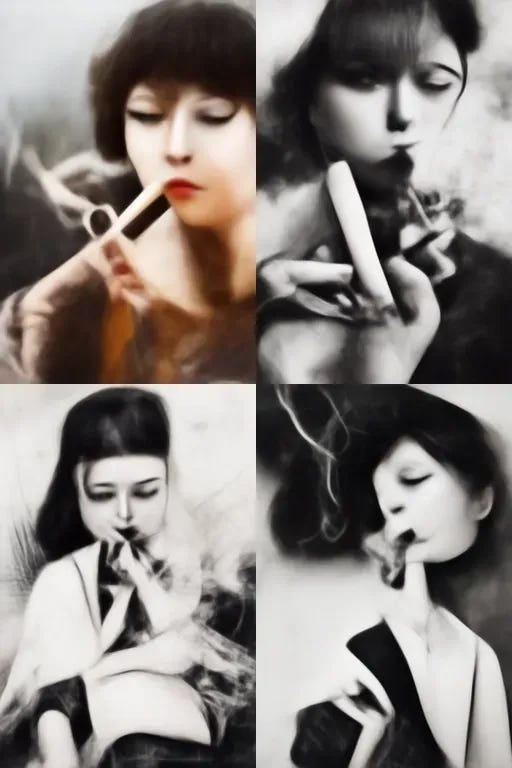
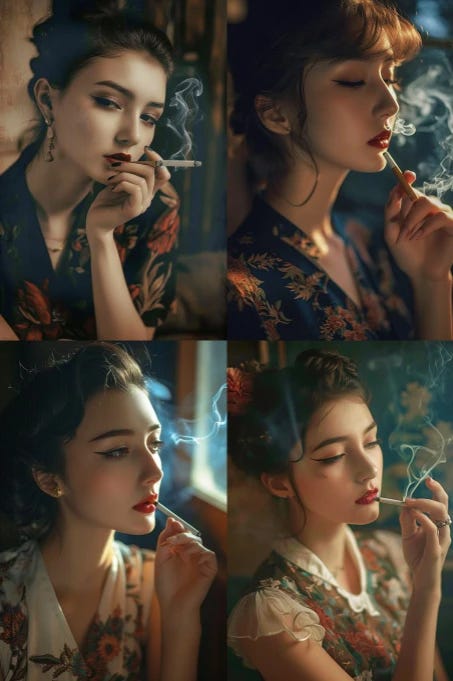
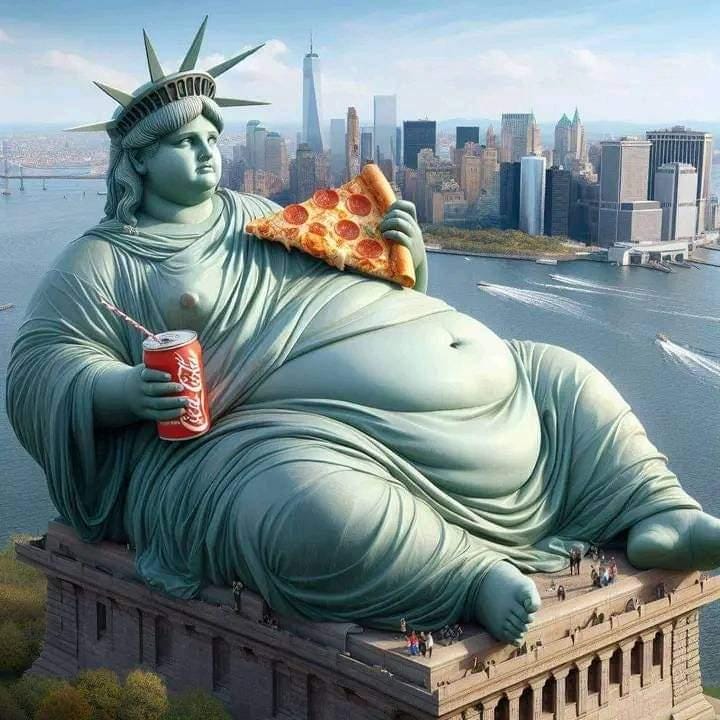
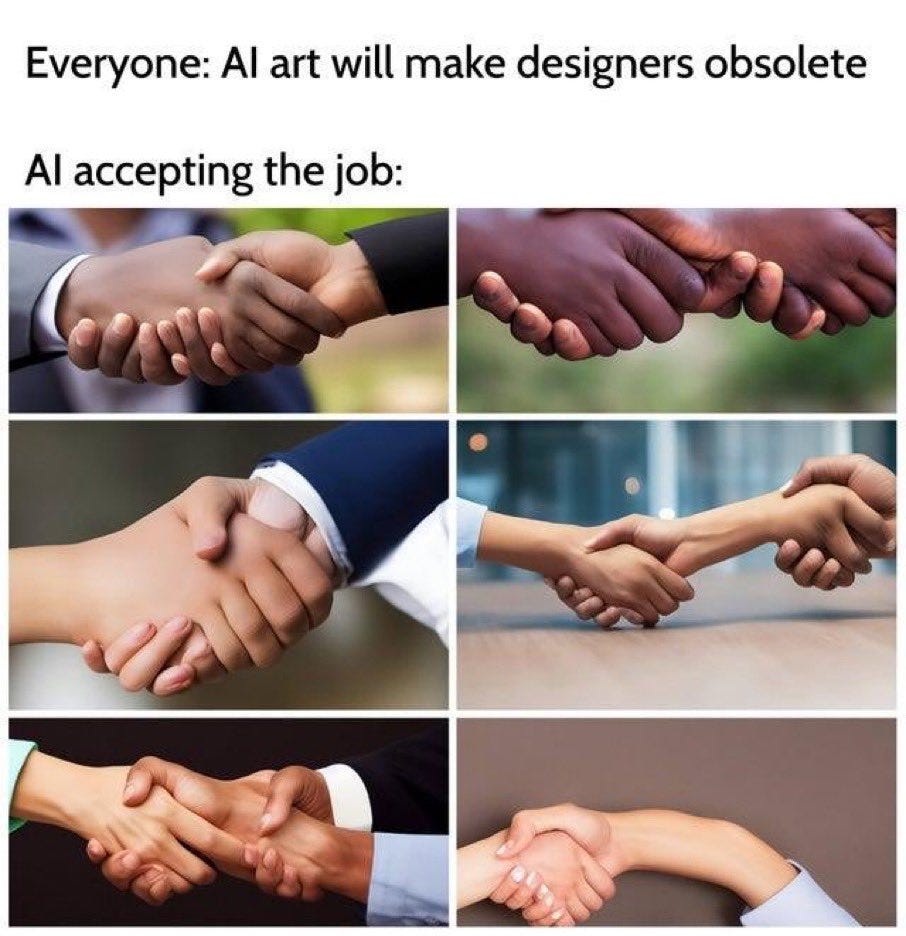

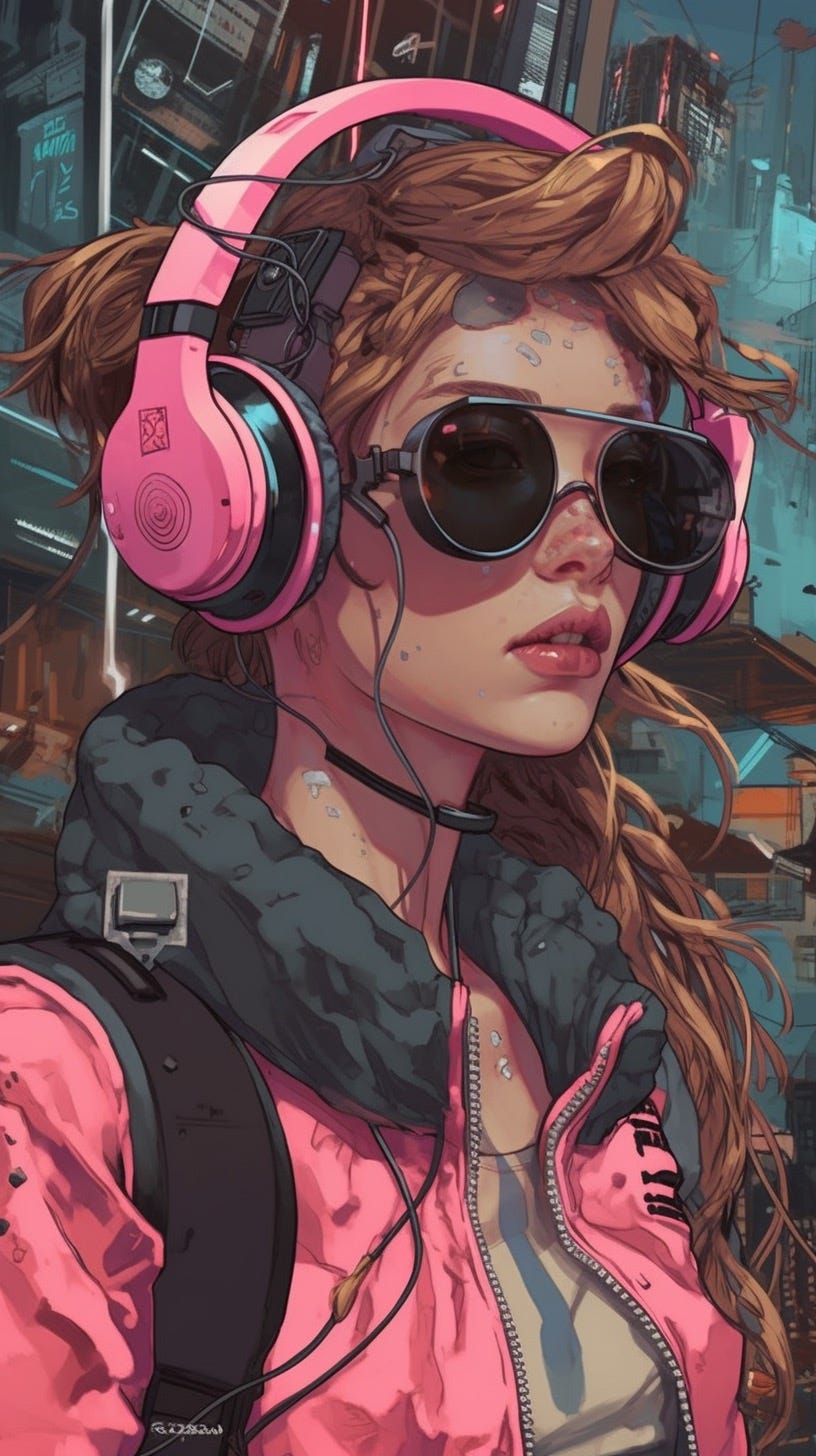
I could not agree with a post more. Thank you for expressing this so beautifully!
A very pleasing article full of depth, I loved reading this, thank you!